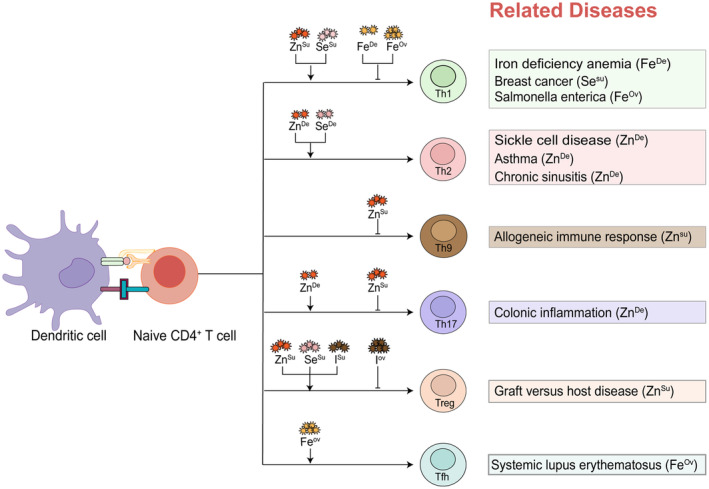FIGURE 2.

The impact of essential trace elements on T cell differentiation. The differentiation of T cells towards Th1 is reduced under conditions of iron deficiency or iron overload, a finding confirmed in patients with IDA and Salmonella enterica infections. Supplementation with zinc and selenium can promote Th1 differentiation, where selenium supplementation can increase Th1 cells, reducing the volume of breast tumours and exerting an anti‐tumour effect. Deficiencies in both zinc and selenium stimulate Th2 differentiation, with zinc deficiency leading to a shift towards Th2, exacerbating pain and organ dysfunction in patients with sickle cell disease, and causing adverse immune responses to diseases such as asthma or chronic sinusitis. Zinc supplements inhibit Th9 differentiation, dampening the allogeneic immune reaction. Zinc deficiency promotes Th17 differentiation, worsening colonic inflammation, while zinc supplementation can inhibit its differentiation. Supplementing with zinc, selenium, and iodine enhances Treg cell differentiation, however, overdosed iodine can reduce Treg cell differentiation. Zinc supplementation can promote Treg differentiation and prevent the occurrence of GVHD. Iron overload promotes Tfh differentiation and exacerbates symptoms in SLE patients. ‘Ov’ represents for overload; ‘Su’ represents for supplementation; ‘De’ represents for deficiency.
